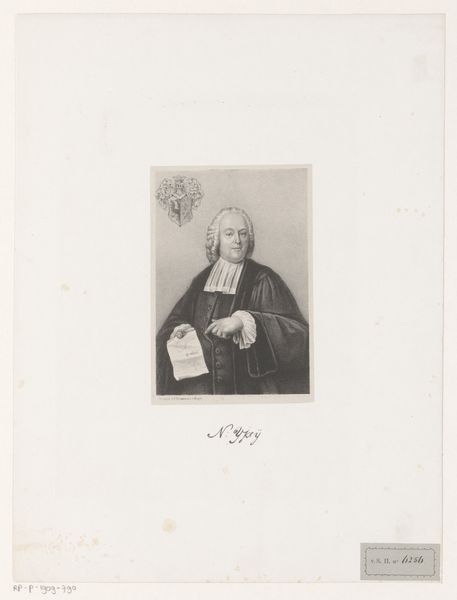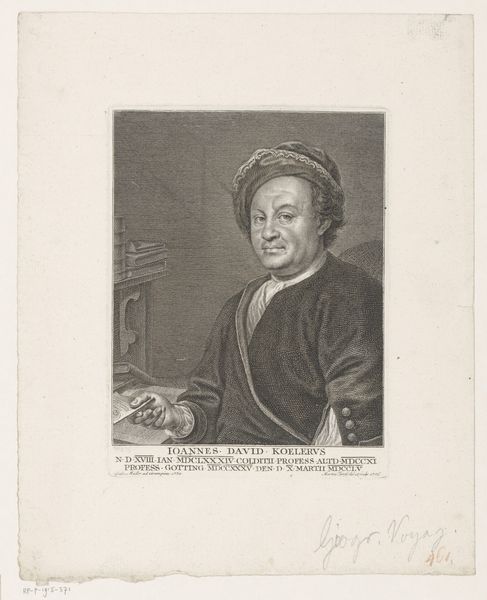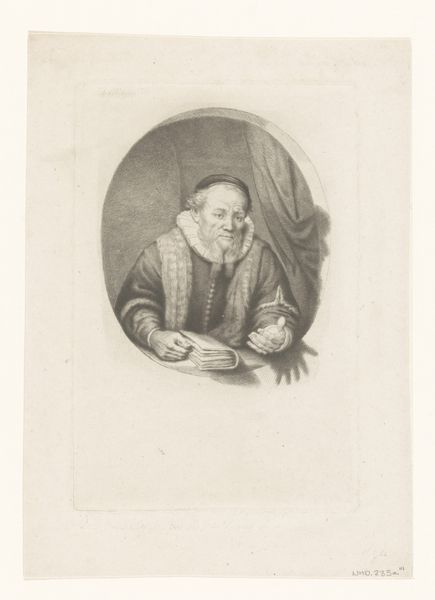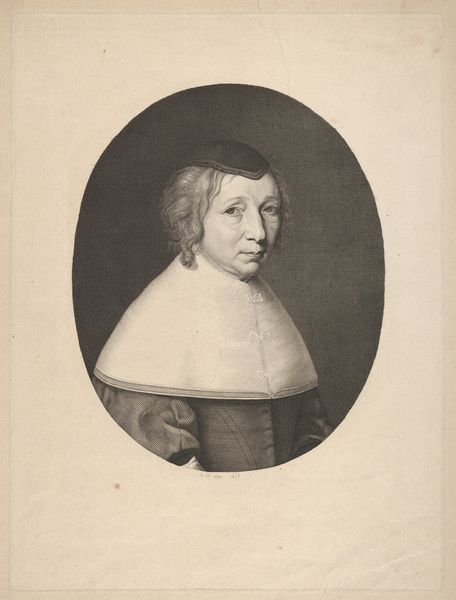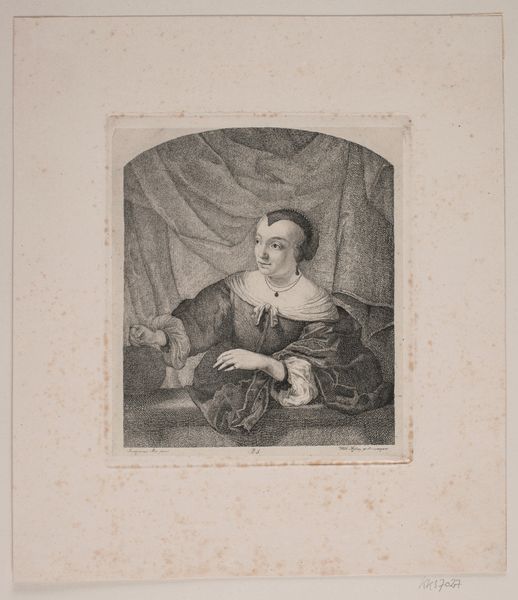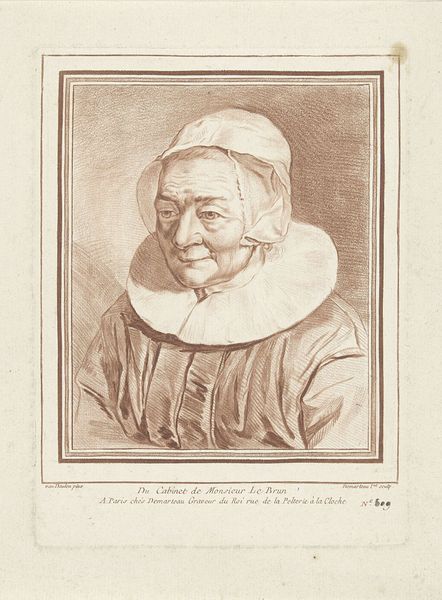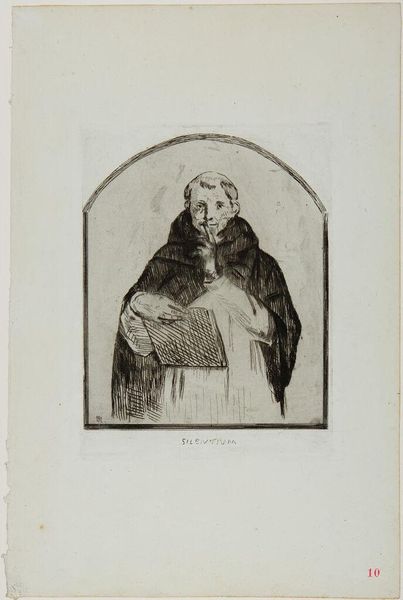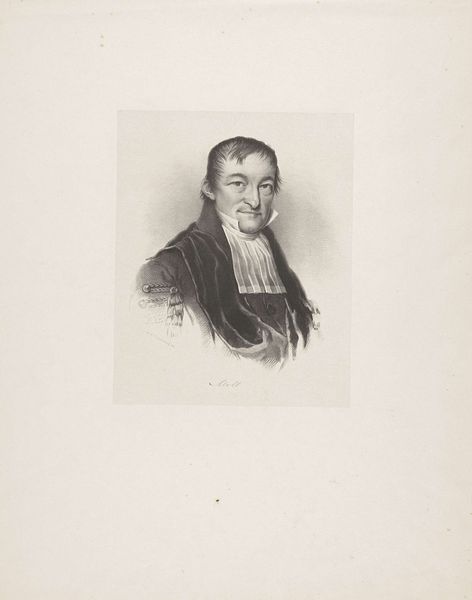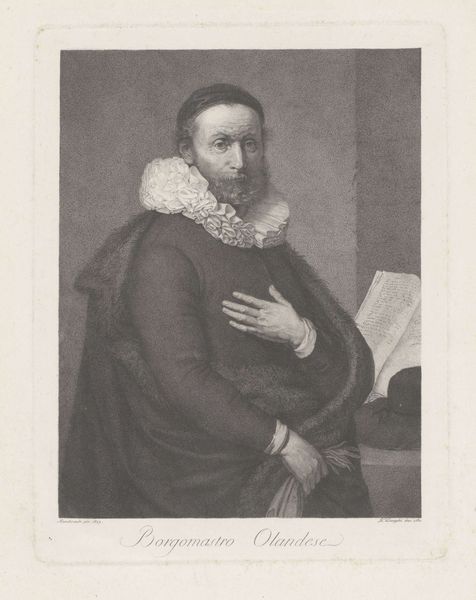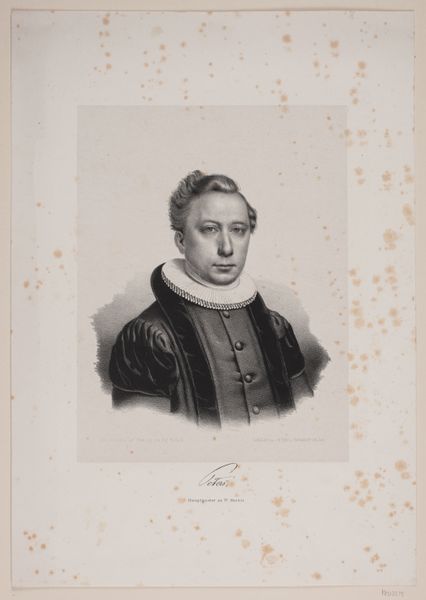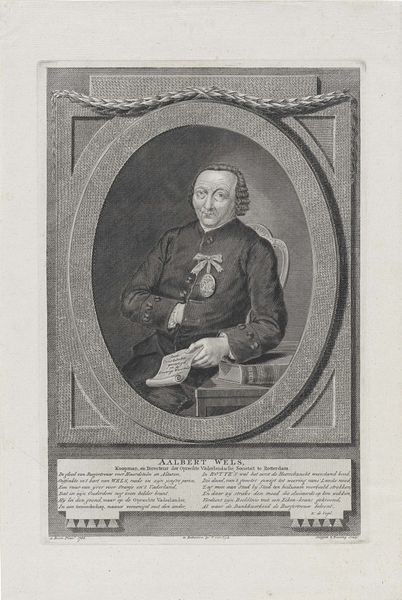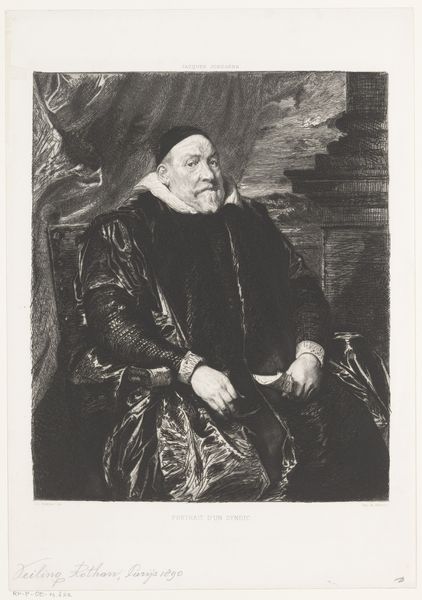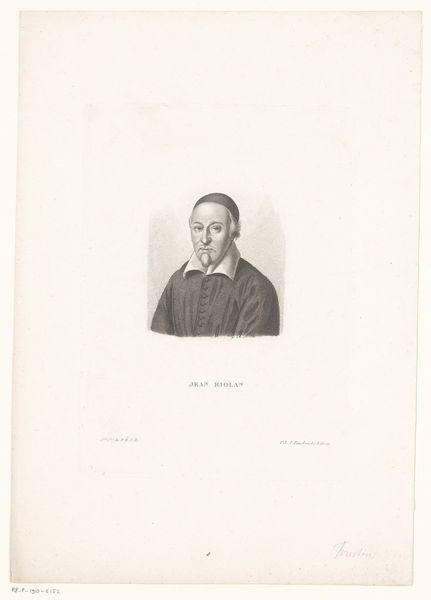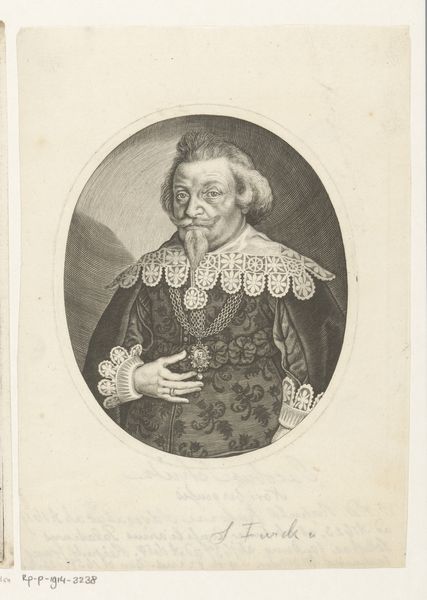
lithograph, print
#
portrait
#
lithograph
# print
#
caricature
#
historical photography
#
portrait reference
#
portrait drawing
#
realism
Dimensions: height 504 mm, width 395 mm
Copyright: Rijks Museum: Open Domain
Franciscus Bernardus Waanders made this lithograph of Mrs. Ledeboer-van den Ende sometime in the 19th century. Lithography is a fascinating process. The artist draws an image with a greasy crayon on a flat stone or metal plate. This is then treated with chemicals so that the image attracts ink, while the surrounding areas repel it. The printmaker then transfers the inked image to paper. Look closely, and you’ll notice the soft, grainy texture. That's a direct result of the lithographic process, giving the portrait a unique, almost ethereal quality. Waanders skillfully used the medium to capture the woman’s likeness and convey a sense of her character. Notice the subtle gradations of tone, achieved through careful manipulation of the crayon and the printing process. The lithograph was a popular medium in the 19th century, because it allowed for relatively quick and inexpensive reproduction of images, which democratized art, making it accessible to a wider audience. By understanding the materials and processes behind this portrait, we gain a deeper appreciation for both the artwork itself and the broader social context in which it was created.
Comments
No comments
Be the first to comment and join the conversation on the ultimate creative platform.
